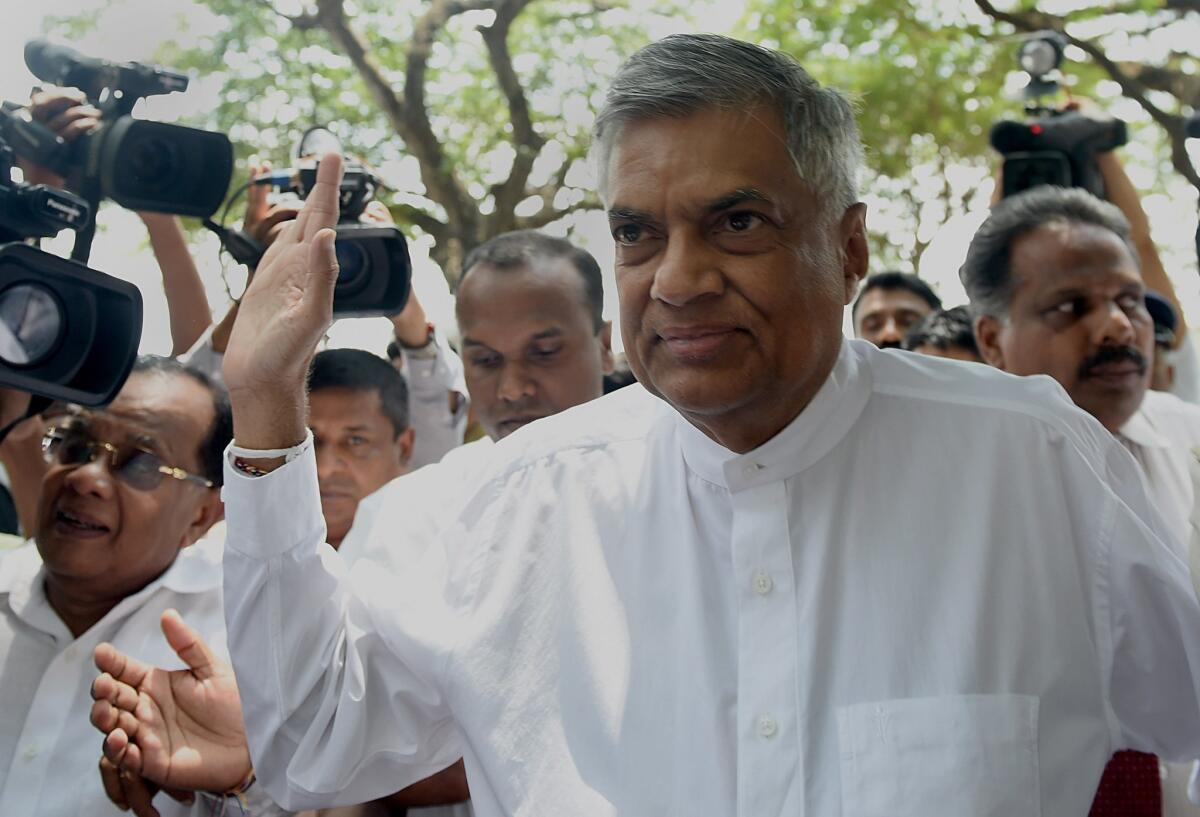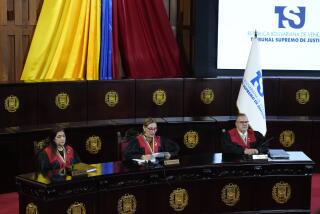Sri Lanka voters back reform-minded government, reject former strongman’s comeback bid

Sri Lankan Prime Minister Ranil Wickremesinghe arrives to cast his ballot in parliamentary elections at a polling station in Colombo on Aug. 17.
Voters in Sri Lanka backed a reform-minded government in election results released Tuesday, rejecting controversial former President Mahinda Rajapaksa’s bid to return to political power.
Final results released by Sri Lanka’s election commission showed Rajapaksa’s coalition had failed to win the majority of parliamentary seats needed to form a government.
“We may not have won this battle but we will never stop fighting for our country,” tweeted Rajapaksa’s son, Namal Rajapaksa.
Prime Minister Ranil Wickremesinghe was making plans to be sworn in again as premier, saying in a statement that “a majority has mandated to continue the Jan. 8 revolution,” a reference to the presidential election earlier this year that ended Rajapaksa’s nine-year tenure as leader of the South Asian island nation.
NEWSLETTER: Get the day’s top headlines from Times Editor Davan Maharaj >>
Shrugging off allegations of corruption, nepotism and war crimes, Rajapaksa sought a comeback in Monday’s parliamentary election, hoping to lead his coalition to a strong enough showing that he could be named prime minister or leader of the opposition. But results showed Wickremesinghe’s coalition won 93 seats compared with 83 for Rajapaksa’s.
With allies and additional seats to be selected based on parties’ proportional representation in the legislature, Wickremesinghe’s coalition was expected to secure the 113 seats needed to form a majority. He and allies of President Maithripala Sirisena, who defeated Rajapaksa in January, were hoping to form a national coalition government.
Rajapaksa did win a parliamentary seat from the northwestern district of Kurunegala.
As in January, when Rajapaksa reportedly tried to cling to power even after results showed he had lost, the ex-strongman did not go down without some drama. Early Tuesday morning, with less than half the votes counted, the Agence France-Presse news agency reported that he had conceded defeat. Shortly afterward, Rajapaksa’s official Twitter account said he “hasn’t yet received official final results” and was not ready to admit defeat.
His eventual concession appeared to cement a remarkably peaceful transfer of power in a country with a history of political violence and assassinations, and just six years removed from a decades-long civil war.
The next government, however, faces massive challenges, including investigating allegations of billions of dollars in corrupt deals from the Rajapaksa era, and reconciling with minority Tamils, who endured widespread abuses at the end of the civil war. A long awaited United Nations inquiry into wartime abuses is expected to be released by next month and will likely raise international pressure on Sirisena’s government to hold perpetrators accountable.
Mushtaq is a special correspondent. Staff writer Bengali reported from Pune, India.
ALSO
The anguish of Tianjin -- homes lost, loved ones missing
Black box recovered from ‘totally destroyed’ Indonesian plane, official says
Former Iraqi leader Nouri Maliki could face charges over Mosul’s fall
More to Read
Sign up for Essential California
The most important California stories and recommendations in your inbox every morning.
You may occasionally receive promotional content from the Los Angeles Times.










